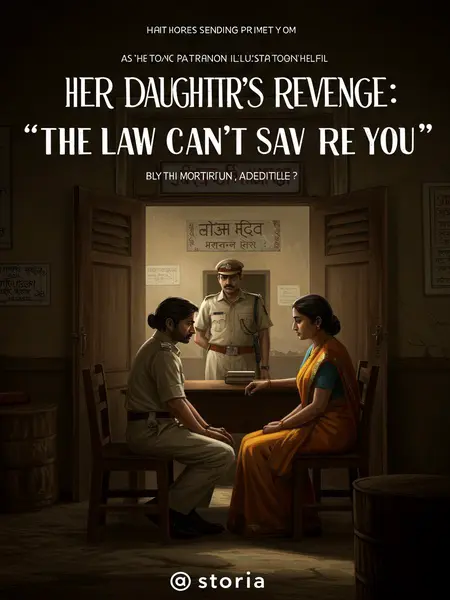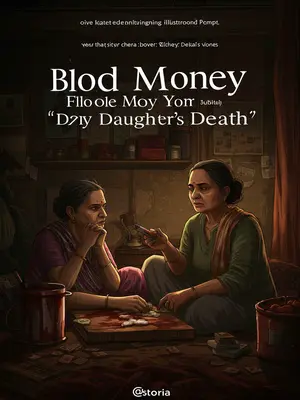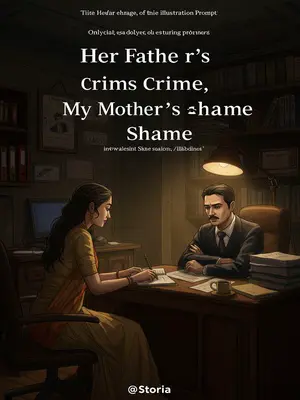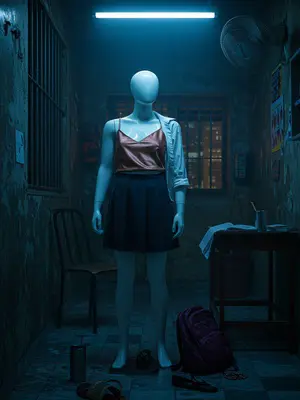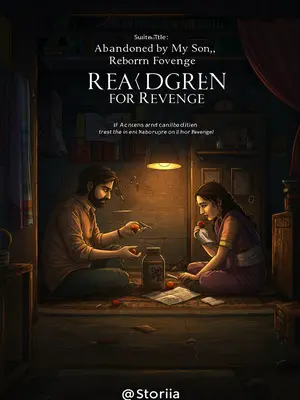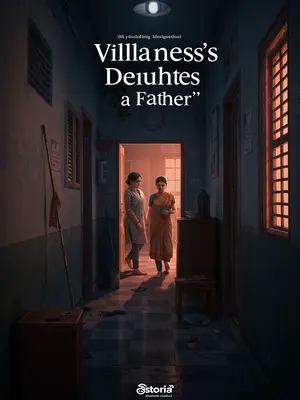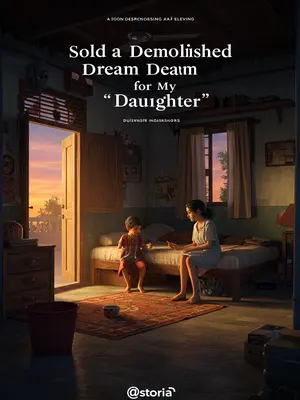Chapter 4: The House of Grief
Mohan Lal’s house was a small brick-and-mortar structure, its blue gate faded, courtyard occupied by a wandering calf. Firewood stacked against the wall, a broken cycle, the signs of long struggle.
A hand-pump squeaked in the courtyard; a battered bucket, a neem tree, and scattered slippers told their own story.
Inside, the main room was cluttered—a single bed, tin trunk, old calendar, the faint smell of kerosene. Newspapers and a steel tiffin sat on the floor.
Mohan Lal looked as defeated as ever—messy hair, unshaven, dull-eyed. His kurta was wrinkled. He offered us water in steel tumblers, hands trembling, eyes darting between us and the ground.
He didn’t resist our presence—if anything, he seemed grateful for company, even if it was the police. He gestured for us to sit on the charpoy, brushing away imaginary dust.
We didn’t have to prod; his pain spilled out. He spoke of hospital bills, endless queues for government aid, neighbours who wouldn’t look him in the eye.
“Kaam chhod diya, Inspector saab. Beti ko sambhalna tha. Ghar ka kharcha, dawai, sab kuch…” His voice broke, eyes shining.
His wife, Kavita, had left him—unable to bear the weight, she vanished. “Woh… chali gayi. Bach nahi paayi, shayad.” The neighbours stopped inviting him anywhere.
Now, only he remained to care for Ananya.
Though Ananya could walk, her mental state was fragile—severe autism, the doctor said. “Doctor bolta hai—autism, stress, trauma… humko kuch samajh nahi aata.”
He showed us the diagnosis, the doctor’s note: “No visitors, no loud noises, no changes in routine.”
Any change triggered her. “Sab kuch toot gaya hai, Inspector saab.”
Ananya stayed in her small room, clutching a tattered teddy bear, crayons untouched. Mohan Lal guarded her door like a sentry.
We all silently agreed not to disturb her further.
His entire life revolved around her. He hadn’t left home in months.
Inspector Javed asked gently if anyone could vouch for his whereabouts. Mohan Lal nodded. “Ram Kishore ji—wohi le aate hain sabzi-doodh. Main toh bahar jata hi nahi.” He showed us a list of groceries.
The crime scene was hours away; he couldn’t have committed the murders.
We confirmed with Ram Kishore, a sturdy old man with a checked shirt and pride in his voice. “Mohan Lal accha aadmi hai. Har din ke paise yeh rakh deta hai.” He produced a notebook of daily expenses—atta, chawal, sabzi, every line accounted for.
With his testimony, we ruled Mohan Lal out. He’d chosen his daughter over vengeance—a strange comfort, in this business.
But the question of Kavita Mohan lingered—her absence a shadow over the case.
